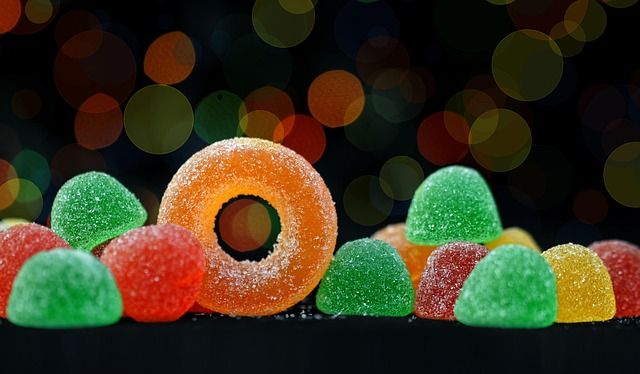Are THCp Edibles a Healthier Alternative to Smoking?
- Category: Pics |
- 17 Mar, 2025 |
- Views: 276 |

The cannabis industry has seen a surge in innovation, introducing new cannabinoids and consumption methods to cater to different user preferences. One such compound gaining attention is THCp (Tetrahydrocannabiphorol), known for its potency and prolonged effects compared to traditional THC.
While many consumers are familiar with smoking cannabis, THCp edibles are emerging as a compelling alternative. But are they a healthier option? Let's break down the science, benefits, and potential drawbacks.
Understanding THCp: What Makes It Different?
THCp is a naturally occurring cannabinoid found in cannabis, but in very small amounts. It is believed to be up to 33 times more potent than THC due to its ability to bind more effectively to CB1 receptors in the brain. This means users can experience stronger psychoactive effects with smaller doses. Because of this potency, THCp-infused products like edibles have become a popular option for those seeking long-lasting, intense effects without frequent dosing.
How Do THCp Edibles Work?
Unlike smoking, where THC or THCp enters the bloodstream almost immediately, edibles go through digestive processing before taking effect. This means:
• Delayed Onset: Effects typically take 30 minutes to 2 hours to kick in.
• Longer Duration: Highs from edibles can last 6-12 hours, compared to smoking, which typically lasts 1-3 hours.
• Metabolic Conversion: When consumed, THCp is metabolized by the liver, producing stronger compounds that enhance its effects.
Are THCp Edibles Healthier Than Smoking?
To assess whether THCp gummies are a healthier alternative, we must compare them to smoking cannabis. Below are key factors to consider:
1. Respiratory Health
One of the primary concerns with smoking cannabis is its impact on lung health. Although cannabis smoke contains fewer carcinogens than tobacco, it still contains combustion byproducts, including tar and harmful toxins. Prolonged smoking can lead to:
• Lung irritation
• Increased mucus production
• Chronic bronchitis
THCp edibles bypass the lungs entirely, eliminating exposure to harmful smoke-related chemicals. This makes them a safer option for those with asthma or respiratory issues.
2. Dosage Control and Potency
THCp’s extreme potency makes dosing a crucial factor. When smoking, users can gauge their high in real-time, allowing them to stop when desired. However, edibles take longer to kick in, leading to potential overconsumption if users are impatient.
A benefit of edibles, though, is precision in dosing. Each edible is typically labeled with exact cannabinoid content, allowing for better control over intake compared to smoking, where potency varies.
3. Long-Term Health Effects
Smoking cannabis over time may contribute to chronic respiratory issues, even if it doesn’t carry the same risks as tobacco. On the other hand, THCp edibles provide a smoke-free alternative, reducing risks of:
• Lung disease
• Throat irritation
• Secondhand smoke exposure
However, some may argue that excessive edible consumption could lead to overuse, though this is more of a behavioral concern than a physiological health risk.
4. Convenience and Discretion
For those who value discretion, THCp edibles are a better alternative to smoking. Unlike smoking, which releases strong cannabis odors, edibles offer a nearly odorless experience. This makes them an ideal option for:
• Public use (where legally permitted)
• Travel (within legal jurisdictions)
• Social settings where smoking is frowned upon
5. Effects on the Digestive System
While edibles protect the lungs, they do require digestive processing. Some users may experience:
• Delayed absorption due to metabolism variations
• Upset stomach, nausea, or bloating (if consumed in large amounts)
For individuals with gastrointestinal disorders, edibles may cause discomfort, making smoking or vaping a more suitable alternative.
6. Psychological and Cognitive Effects
Both THCp edibles and smoking can cause intense psychoactive effects, but edibles often lead to stronger, longer-lasting highs. This can be beneficial for:
• Chronic pain management
• Anxiety relief (in controlled doses)
• Sleep disorders
However, stronger effects may increase the risk of paranoia or anxiety, especially in new or sensitive users. Proper dosing and starting low and slow are essential to ensure a comfortable experience.
Are THCp Edibles the Right Choice for You?
While THCp edibles appear to be a healthier alternative to smoking in terms of respiratory health and long-term safety, they are not for everyone. The choice depends on:
• Your tolerance level – New users should start with very low doses.
• Your health goals – Edibles are likely the better option if you have lung conditions.
• Your lifestyle – If you need a discreet, odor-free method, edibles are preferable.
• Your patience – If you dislike waiting for effects, smoking may be more suitable.
Conclusion: Are THCp Edibles a Healthier Alternative?
Yes, THCp edibles are healthier than smoking in terms of avoiding lung damage, toxins, and combustion-related risks. However, they require careful dosing and patience due to their delayed onset and potent effects.
For users looking for a long-lasting, smoke-free cannabis experience, THCp edibles provide a safe and effective alternative. However, those who prefer immediate effects and dose control may still opt for traditional smoking methods.
As with any cannabis product, responsible use is key—start small, go slow, and find the method that suits your needs best.

